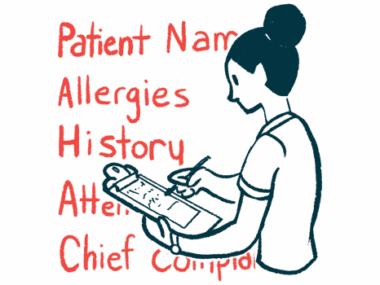University of Sheffield Partners With Aclipse to Advance ALS Treatment M102 to Clinical Trial
Written by |

M102, a potential treatment for amyotrophic lateral sclerosis (ALS), is advancing into its first clinical study in patients through a partnership between researchers at England’s University of Sheffield Institute for Translational Neuroscience (SITraN) and Aclipse Therapeutics.
This project is being supported in part by a $700,000 grant awarded by FightMND, an Australian non-profit organization that supports research into motor neurone diseases (MND), such as ALS.
“We are very excited for MND patients, as FightMND is supporting our effort to advance this important therapy — which was discovered in SITraN as a neuroprotective molecule and which looks so promising in preclinical models — into clinical trials for our patients,” Pamela Shaw, MD, director of SITraN, said in a press release.
“Our collaboration with Aclipse Therapeutics has been very productive and we are hugely grateful that FightMND are supporting us,” she said.
M102 was discovered by SITraN researchers in 2013, and preclinical studies conducted by the researchers demonstrated the potential for the treatment to stop and reverse the progression of ALS symptoms.
The molecule acts on two pathways known to play a role in the development of ALS — the nuclear factor erythroid 2-related factor 2 (NRF2) pathway and the heat shock transcription factor 1 (HSF1) pathway — both of which have been considered as potential targets for treating neurodegenerative diseases like ALS.
The NRF2 pathway deals with managing oxidative stress, the imbalance between the production of toxic reactive molecules and their clearance, which contributes to neurodegenerative disease progression.
The HSF1 pathway enhances protein folding, counteracting the formation of the toxic protein clumps that are observed in patients with neurodegenerative disease.
M102 has been shown to activate both pathways, resulting in the neuroprotective effect observed in preclinical studies. Researchers believe that M102 has the potential to slow or reverse disease progression in patients with familial or sporadic ALS.
“M102 has properties which allow multiple protective pathways to be activated within the nervous system and we are very hopeful that it may have beneficial effects in slowing the progression of MND,” said Shaw.
Given the success of M102 in preclinical studies and plans to launch clinical studies, FightMND awarded a research grant to support these plans. The grant also will contribute toward the development of biomarkers that can be used to monitor the effectiveness of M102 in clinical studies.
“M102 has shown promise as an effective new treatment for ALS/MND patients,” said Bec Sheean, PhD, research director at FightMND. “We are delighted to be supporting the development of M102, which has the potential to be a disease-modifying drug that improves on current standard of care that only minimally delay disease progression for most MND patients.”
In launching the clinical trials, the researchers have partnered with Aclipse, which focuses on the development of treatments for diseases with unmet needs.
“We are honored by the support from FightMND which shares our vision for a novel and broad multi-disease pathomechanism approach to treating ALS patients,” said Raymond Houck, CEO of Aclipse. “The FightMND award also confirms M102’s success to date and validates M102’s potential to become a targeted and life-saving therapeutic for ALS patients.”
In addition to its potential in ALS, researchers also believe that the M102 treatment has potential to treat other neurodegenerative diseases, including Friedreich’s ataxia, Parkinson’s disease, and Huntington’s disease.
The development of M102 is part of research being done at University of Sheffield’s Neuroscience Institute in the U.K., which aims to unite scientists with unique specialties to work toward the common goal of developing innovative treatments for neurodgenerative disease.





